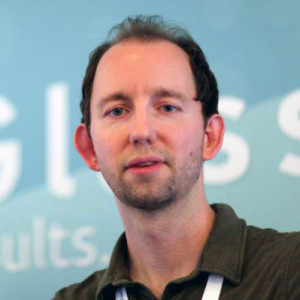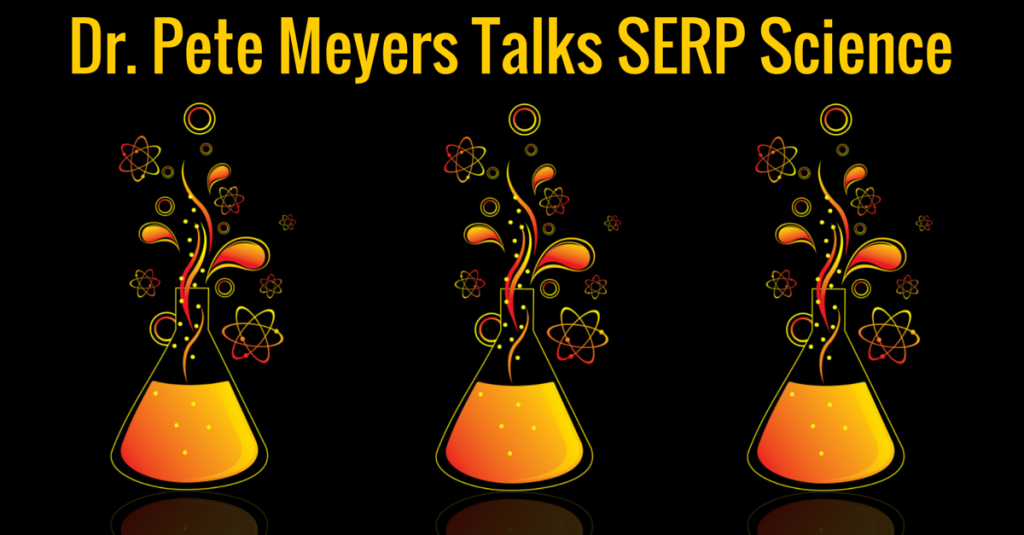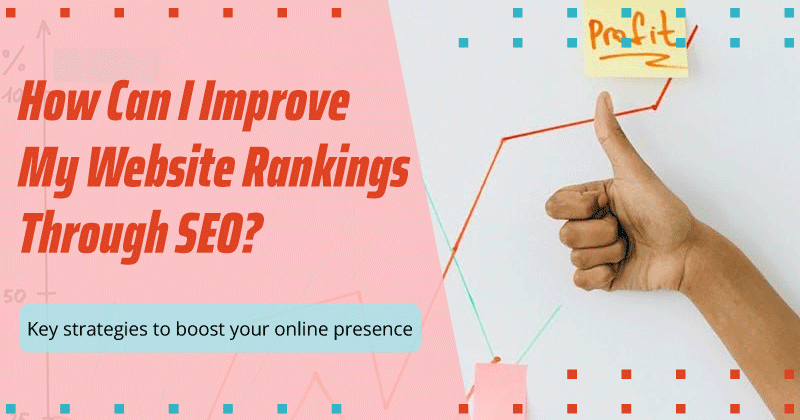#SMX Speaker Series: Moz’s Dr. Pete Meyers Talks SERP Science
Meet Dr. Pete Meyers — Moz’s marketing scientist and the brains behind the MozCast. MozCast reports volatility of Google SERPs as a weather report, measuring the changes in Google rankings daily in an effort to track algorithm changes.
“MozCast was born out of my frustration that Google admitted to hundreds of search changes every year, and we could only name a handful,” Meyers explained. “The project has evolved a lot in the past three and half years, and the one thing I’ve heard from a lot of people is ‘Thanks for letting me know I’m not crazy.’ There are so many times when we think something changed, and we just need that gut-check. I hope MozCast helps fill that gap.”
Running MozCast positions Meyers as a SERP historian. On March 3, Meyers will present Dr. Pete’s Guide To The Changing Google SERPs at Search Marketing Expo (SMX) West. He’ll bring audiences up to date on all the latest changes to the SERP, the Knowledge Graph boxes, the Local Pack, display carousels and more.
Today, Meyers joins us on the blog for an exclusive interview about all things Google-related. This is the latest in a series of interviews with VIP SMX West Speakers. Over the last month, we’ve heard insights from:
- Google’s Gary Illyes
- SEO by the Sea’s Bill Slawski
- Bruce Clay, Inc.’s Mindy Weinstein
- HubSpot’s Luke Summerfield
- aimClear’s Marty Weintraub
Now on to the doctor.
Kristi Kellogg: As a SERP historian, what do you see looming on the horizon with Google’s search engine results pages?
Pete Meyers: Google has made a strong shift toward mobile-first design, and I think that means that they’re going to take more and more liberties with the layout of desktop search. We’re going to see more mixing of paid and organic elements, especially in Knowledge Graph entities. The days of organic results in a block with ads on the top, bottom, and right are behind us.
KK: In October, you mentioned MozCast topped a quarter-million visits — why is MozCast so important?
PM: I’ve realized over time that algorithm changes are just one small piece of the puzzle. Google is creating and modifying new SERP elements all of the time, and we built the Feature Graph to track those changes. This is the part of the system that I’m really passionate about these days, and there are other systems in play beyond the public tool that help alert us when Google makes changes. I hope that research is useful to a broader audience than just hardcore algorithm chasers.
KK: How does your role as a cognitive psychologist play into your day-to-day work at Moz?
PM: A lot of what I do involves answering messy questions and designing experiments or finding the data and models that could start to make sense of them. While the ins and outs of cognitive psychology don’t necessarily come into play every day, my training as a research scientist has been critical to the last few years of my work.
KK: Without giving away all the secrets you’re going to share during your SMX West session, what do marketers need to know about the growth of Knowledge Graph boxes? Why are they so important?
 PM: If I had to really drill it down into one point, I’d say this —l Google can’t rely on a human-edited Knowledge Graph. It just doesn’t scale. So, Google is going to have to build the Knowledge Graph off of the accumulated knowledge of the search index, and the second-generation answer boxes we’ve seen pop up in the past year are the beginning of that. As it stands right now, Google is essentially competing against us with our own information, and I think that’s a turning point in the relationship between Google and webmasters.
PM: If I had to really drill it down into one point, I’d say this —l Google can’t rely on a human-edited Knowledge Graph. It just doesn’t scale. So, Google is going to have to build the Knowledge Graph off of the accumulated knowledge of the search index, and the second-generation answer boxes we’ve seen pop up in the past year are the beginning of that. As it stands right now, Google is essentially competing against us with our own information, and I think that’s a turning point in the relationship between Google and webmasters.
KK: You recently tweeted:
Whether you believe everything Google says or the opposite of everything Google says, you’re still letting Google tell you how to think.
— Dr. Pete Meyers (@dr_pete) January 29, 2015
Can you expand on that?
PM: Sometimes, I think we’ve taken our “white hat” vs. “black hat” mythology to heart. For every person who believes every word that a Google rep says, there’s someone who rails about how that person is naive and thinks that nothing Google says can be trusted. If you automatically disbelieve everything Google tells you, then Google still pretty much controls the game. I think we need to recognize that, while Google is a $60 billion company whose motivations aren’t always aligned with ours, not everything they do is a conspiracy. We have to be able to think for ourselves, collect our own data and learn to interpret what Google reps say effectively.
KK: You wrote about the slight alteration to the Google logo in June. Why would Google make such a seemingly insignificant change such as this?
PM: First off, I should say that that post was really just for fun and came out of my love for minimalism and the occasional absurdity of big corporate branding decisions. I have a feeling that some designer at Google just stared at the logo so long it was making them crazy :) For some reason, the old kerning wasn’t working quite right for a new use or platform. I wouldn’t read too much into two pixels.
KK: What aspect of the Google algorithm fascinates you the most?
PM: I think it’s the whole ecosystem that fascinates me these days. Organic search is only one piece of the puzzle, and Google has to manage an interplay that somehow provides value to searches, provides value to webmasters, and still makes them billions of dollars. In some ways, I’m sympathetic to the challenge they face, even as I think they wield a lot of power and someone has to keep an eye on them. I don’t think anyone knows where search is headed in the next five years, including Google.
KK: If you could only use one social media platform, what would it be and why?
PM: For me, it would definitely be Twitter. I’m not saying that’s true for everyone or that Twitter is clearly superior — it’s just a good fit to my personality. Personally and professionally, Twitter has let me navigate the six degrees of separation and produced far more value than I ever would’ve imagined when I first tried it out.
KK: What are you five most-used apps?
PM: I have to admit, I’m kind of old-school when it comes to software — I tend to do things the hard way for too long. When the hard way stops working, my next mistake is to start building my own dashboards, when I probably could’ve just installed someone else’s software.
If we’re talking desktop, I spend most of my time in Excel and PHP/mySQL. I’m into some productivity apps, but I change my mind about them roughly weekly. I love making lists, and I recently discovered AnyList. I’m also a huge fan of the Creative Whack Pack app (which is based on a card deck of creativity exercises). I use SoundHound a lot — I love thinking “wait, what’s that song?” and just holding my iPhone up to the air. That just never gets old for me.
KK: What’s on your reading list for 2015?
PM: Most of my reading list from 2014 :) A ton of fiction, actually — I’m dabbling with the idea of writing something, and I need a break from business books. I’m currently reading Randall Munroe’s (of xkcd fame) “What if?” and “Good Omens” by Neil Gaiman and Terry Pratchett. I’ve been getting to know a lot of indie authors, so I’m also reading a lot of their stuff, as they release it usually. So, my list tends to change a lot.
Is there a question YOU would like to ask SMX West 2015 speaker Dr. Pete Meyers? Share it in the comments! And check back on the blog all month long — the SMX West Speaker Series will continue with Duane Forrester, Rae Hoffman, Debra Mastaler, Bill Tancer and Eric Enge.

LEAVE A REPLY










